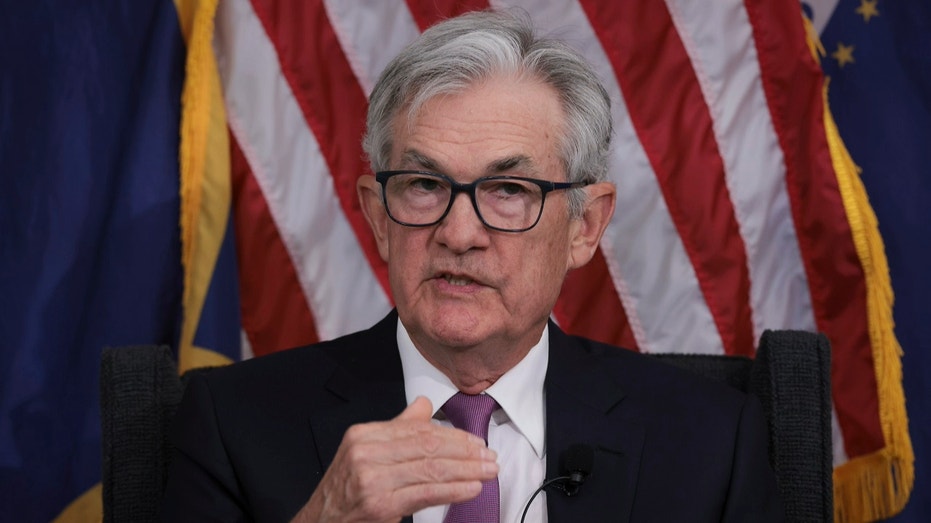Americans are taking on credit card debt to pay for sky-high prices: Sandra Smith
Kudlow panelists Kevin Brady, Art Laffer and Sandra Smith discuss how Bidenomics is falling flat with voters.
Household debt levels in the U.S. increased in the first quarter of 2024, which created new challenges for already stressed credit card borrowers, according to a new report from the Federal Reserve Bank of New York released Tuesday.
The report found that overall debt levels rose by $184 billion, or 1.1%, in the first quarter to a total of $17.69 trillion. Overall borrowing levels are $3.5 trillion higher than they were at the end of 2019 prior to the onset of the COVID pandemic.
Of the total, mortgage balances rose by $190 billion to $12.44 trillion while overall outstanding credit card balances edged lower by $14 billion at the end of the quarter to $1.12 trillion. However, despite that decline, credit card balances were up 13.1% from a year ago.
The report also found that more borrowers are running into financial stress, as overall delinquency rates reached 3.2% in the first quarter of 2024 — slightly higher than the 3.1% recorded in the first quarter of 2023.
NEARLY HALF OF AMERICANS SAY FINANCES ARE TAKING TOLL ON THEIR MENTAL HEALTH

More borrowers are running into financial stress, according to a new report by the Federal Reserve Bank of New York. (iStock / iStock)
Although delinquencies ticked up in the most recent quarter, the report noted that they remain below the 4.7% that was seen at the end of 2019 before the COVID pandemic began.
The New York Fed's report also noted some areas in which strength among consumers has frayed. Transitions in delinquent borrowing levels rose in the first quarter for all borrowing types, including 8.9% of credit card accounts and 7.9% of auto loan accounts moving into troubled status. Early delinquency rates for mortgages remained "low" by historical standards, the report added.
"An increasing number of borrowers missed credit card payments, revealing worsening financial distress among some households," said Joelle Scally, regional economic principal for the New York Fed's Household and Publicly Policy Research Division.
AMERICANS ARE CARRYING A RECORD AMOUNT OF HOUSEHOLD DEBT

Credit card delinquencies and transitions of borrowing types into "troubled" status increased in the first quarter. (iStock / iStock)
The New York Fed added in a blog post about the report that the credit card borrowers facing the most acute stress were those who have exploited their total borrowing capacity.
"The share of maxed-out borrowers has been increasing from pandemic lows and is approaching pre-pandemic levels," the bank's economists wrote.
"The delinquency transition rates of those maxed-out borrowers are noticeably higher than pre-pandemic, resulting in higher transition rates into credit card delinquency overall," they added, while noting that if current trends continue there will be an increase in overall troubled credit card accounts.
GET Gxstocks ON THE GO BY CLICKING HERE

Federal Reserve Chairman Jerome Powell has signaled that interest rates will remain elevated until inflation subsides. (Win McNamee/Getty Images / Getty Images)
The Fed's interest rate hikes meant to tamp down inflation have raised borrowing costs for homebuyers and credit card users. The benchmark federal funds rate, which influences rates for mortgages and credit cards, has been at a target range of 5.25% and 5.5% since last July — the highest level in 23 years.
While the higher interest rates have in turn raised costs for borrowers, the New York Fed noted that American consumers have strong balance sheets and have generally been in solid shape.
Reuters contributed to this report.




